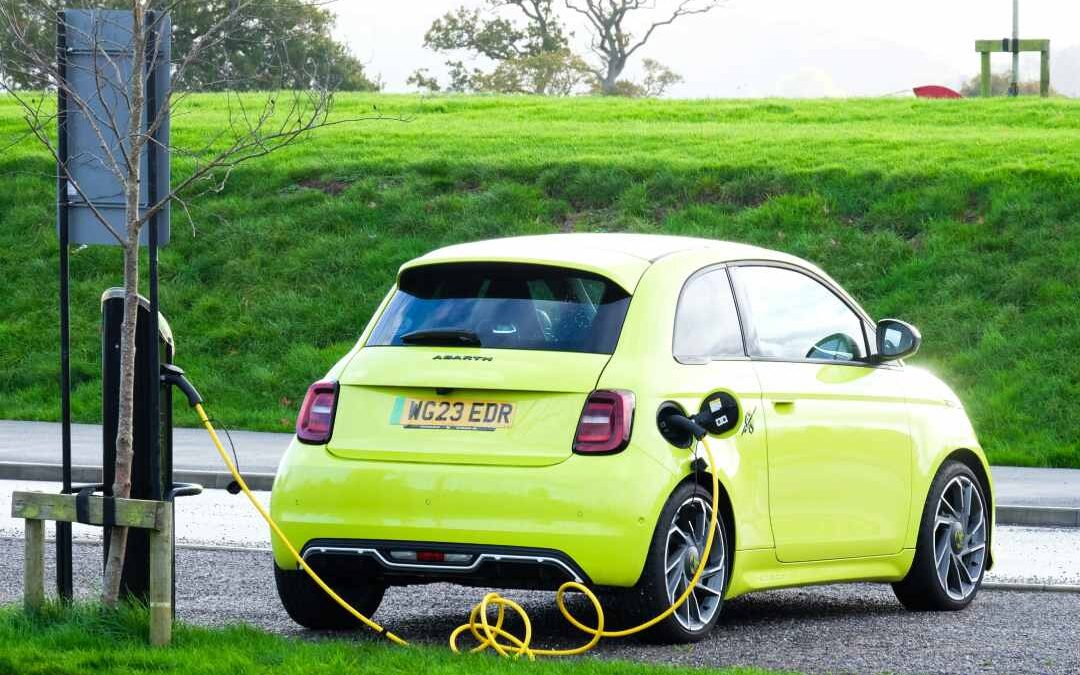The World’s EV Fleet Continues to Grow Strongly, with 2024 Sales Set to Reach 17 Million: IEA
This represents a continuation of the robust growth witnessed in the first quarter, where sales jumped 25% compared to the same period in 2023. Notably, the number of electric cars sold in the first three months of 2024 is already roughly equivalent to all the electric car sales in 2020.
Electric vehicles are expected to account for more than one in five cars sold worldwide in 2024, a trend projected to accelerate in the years ahead, according to the latest Global EV Outlook by the International Energy Agency(IEA).
The report highlights the continued momentum behind electric cars, with global sales expected to reach a staggering 17 million units by the end of 2024. This represents a continuation of the robust growth witnessed in the first quarter, where sales jumped 25% compared to the same period in 2023. Notably, the number of electric cars sold in the first three months of 2024 is already roughly equivalent to all the electric car sales in 2020.
China is spearheading the electric vehicle revolution, with projections indicating that electric cars will account for nearly half (45%) of all car sales in the country by 2024. Sales are expected to reach a remarkable 10 million units, a testament to China’s aggressive push towards electric mobility.
Despite a sluggish overall passenger car market and the phasing out of subsidies in some countries, the electric vehicle trend is gaining traction in the United States and Europe as well. The US market is poised to see roughly one in nine cars sold being electric, while Europe is expected to witness electric vehicles accounting for one in four cars sold.
Long-Term Outlook Remains Positive
The strong growth trajectory is set to continue, with the IEA report predicting that under current policy settings, half of all cars sold globally could be electric by 2035. This figure leaps to two-thirds of global car sales if countries fulfil their climate and energy pledges. In this optimistic scenario, the widespread adoption of electric vehicles could potentially eliminate the need for 12 million barrels of oil per day – a significant reduction equivalent to the current combined road transport demand of China and Europe.
The IEA report attributes the rapid growth of electric vehicles to several factors. Substantial investments in the electric vehicle supply chain, ongoing government support through policies, and declining prices for electric vehicles and batteries are paving the way for a more electric future.
Automakers are aligning themselves with the growing government focus on electric vehicles. Significant financial commitments have been made, and battery manufacturing capacity is expanding rapidly to meet the anticipated surge in demand.
Affordability Remains a Key Consideration
The IEA report acknowledges the importance of affordability in ensuring continued growth. While purchase prices for electric vehicles are becoming increasingly competitive with conventional counterparts in China (over 60% of electric cars sold in 2023 were cheaper than gasoline models), Europe and the US still see gasoline vehicles holding a slight edge in upfront costs. However, the report predicts that intensifying competition and advancements in battery technology will lead to price reductions for electric vehicles in the coming years. Lower operating costs for electric vehicles can also offset the initial higher purchase price.
China’s Rise as an Electric Vehicle Powerhouse
The growing dominance of Chinese automakers in the electric vehicle market is another key takeaway from the report. Accounting for over half of all electric car sales in 2023, China’s exports are projected to further contribute to price reductions globally. Chinese companies are also establishing production facilities abroad, offering more affordable electric vehicle models to overseas markets. This trend highlights the significant shift in the global landscape of electric vehicle production.
Supporting Infrastructure A Key Concern
The report emphasizes that ensuring the widespread availability of public charging infrastructure is crucial for sustained growth in electric vehicle adoption. While the number of public charging points globally increased by 40% in 2023 compared to 2022, with a focus on fast chargers, significant expansion is still required. The IEA estimates a sixfold increase in charging networks by 2035 is necessary to support the level of electric vehicle deployment envisioned in government pledges. Additionally, careful planning and policy support are essential to ensure that the increased electricity demand from charging EVs does not strain power grids.
Read More
India Govt Approves New Electric Vehicle Policy: Will Tesla Enter India?
Sibi Sathyan
Related posts

Subscribe
Error: Contact form not found.

